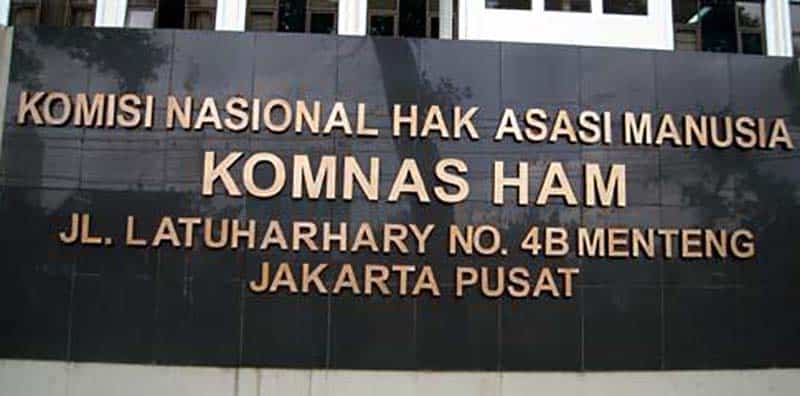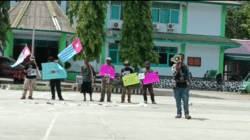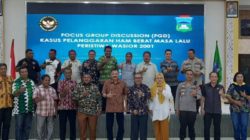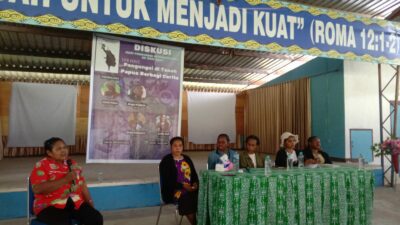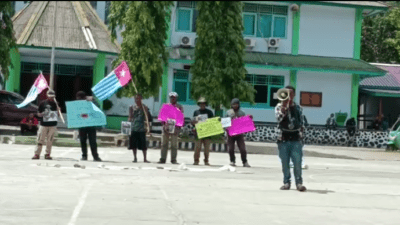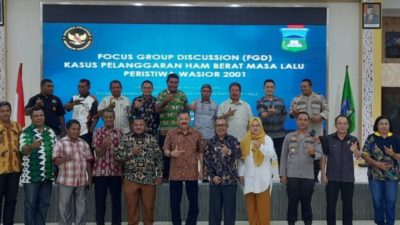
Jakarta, Jubi – Still in the framework of evaluation of Joko Widodo – Jusuf Kalla 3 years’ government, law enforcement and human rights is
the most hot topic and spotlight of many parties.
This time the Vice Chairman of Commission III of the House of Representatives, Benny K. Harman who considered the performance
of government of Joko Widodo – M. Jusuf Kalla in the field of law enforcement, tend to walk in place.
“We are like running in place, the progress in law enforcement field is like ‘poco-poco dance’,” Benny said as quoted by Antara
on Saturday (October 28) in a discussion in Jakarta entitled Critical Evaluation of Three Years of Jokowi Government; where is Legal Justice?
According to him, the lack of performance shows the government is not working well. “If this is the case, we can do this even without the president,” he said.
According to him, the law in Indonesia today tends to be used by the government as a tool of power by putting justice aside .
“The law is supposed to guard democracy, but I am afraid that the it used as a tool to achieve the interests of power,” he said.
Focus on infrastructure is the cause?
In response, Experts Office Staff of the President, Ifdhal Kasim said it is due to government policy focusing on infrastructure development,
which does cause less attention in other areas.
But Ifdhal also specifies, current legal reforms concentrate on regulatory reform, the settlement of a number of human rights cases
and the reform of legal institutions.
He said from seven past human rights violation cases, two are under legal processing.
“There have been two cases, that is Wasior and Wamena in Papua, which are now in the process of submitting to the court,” he said.
He claims the government is looking for the best solution to resolve a number of other human rights cases and is expected to be completed
before President Jokowi’s term is completed by 2019. “The government is looking for a comprehensive format of human rights resolution,” he
said.
While in some official responses at UN forums, such as Human Rights Council Meeting, Universal Periodic Review (UPR) and General Assembly
of the United Nations few weeks before, the Indonesian government has consistently explained various claims of infrastructure development
outcomes in Papua under Jokowi’s government as responses to issues Human Rights of Papua.
It seems as a way to counter the issues of separatism or self-determination that began to get additional support in the UN forums, not only from the Pacific countries, but also some countries in the Caribbean and Africa.
Related to that, Foreign Minister Retno Marsudi told BBC (26/10) that government can not prevent countries in the South Pacific region from promoting human rights issues in Papua to the UN General Assembly. Because every UN member country gets the right to discuss any subject in the public forum.
“All countries are free to express their opinion, that is their right,” said Retno after describing the achievements of the Ministry of Foreign Affairs under the administration of President Joko Widodo in Jakarta.
However, she continued, Indonesian diplomats at the UN are encouraged to answer all the demands and insistence by other countries through the exposure of development progress that proclaimed by the government.
“Our right is to explain the development carried out in Papua, comprehensive developments etc, as we have explained,” said Retno.
Attention to human rights has lost
Previously, Amnesty International in their evaluation statement on the performance of Jokowi’s human rights sector concluded that Jokowi’s
political commitment in handling human rights violations cases has disappeared.
“Jokowi’s commitment and will have been lost while the time is ticking,” said Usman Hamid, Director of Amnesty International
Indonesia, quoted by Tempo.co (10/10) during a press conference at his office in Menteng, Central Jakarta.
According to human rights activists and former Kontras Coordinator, one of the causes of the stagnancy of human rights cases settlement is that the judicial system eliminates punishment of military personnel involved in human rights violations.
In fact, he continued, many rules of law that can be used as a basis for the government to resolve the issue of human rights. “But there is
an unfairness of Jokowi in using the constitution,” he said.
So it is not surprising that many cases of human rights violations ended in documents and notes. Some of the cases are related to freedom of expression and religion, to cases of violence.(tabloidjubi.com/Zely)


